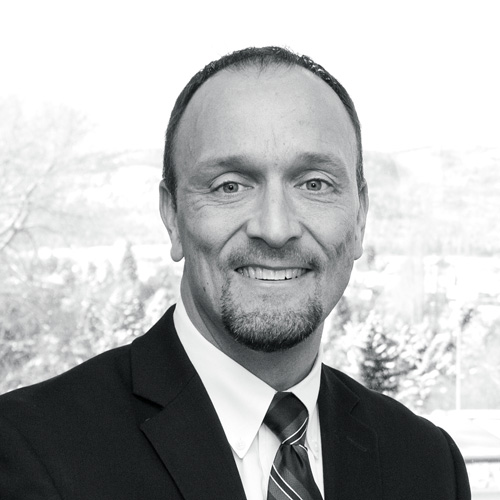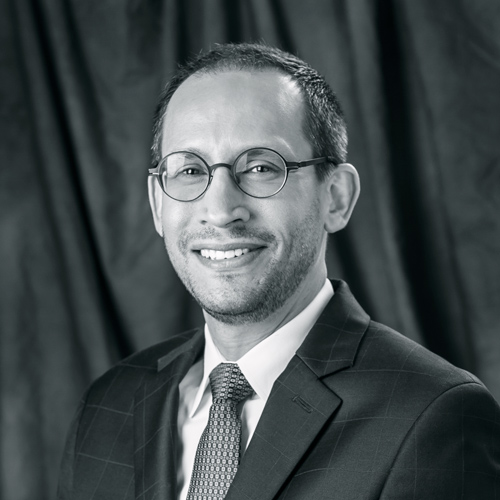Since National Surgical Healthcare (NSH) was founded in 1998, it’s been one of the fastest-growing providers of surgical healthcare, having partnered with physicians across the United States to build a current rank of more than twenty specialty hospitals and surgical centers. For Bernie Presutti, senior VP of human resources, this means that a large part of his daily work involves consulting on HR management at the company’s various locations to make employees’ jobs go more smoothly. “The beauty of this is that I’m dealing with labor issues on a day-to-day basis that facilities might only deal with once or twice a year,” Presutti explains. “I’m here to help them navigate through the days when they have concerns or uncertainties.”
Presutti’s work ties in well to the company’s philosophy. After all, looking at ways to most effectively provide quality patient care, he notes, means being as accessible as possible to team members at each of their locations.
Having started with NSH in 1999, Presutti built the human resources department from the ground up. After previously working as a hospital administrator, he didn’t join the company from a typical HR track, which meant that he had his own philosophy and vision on what the department should do. “I believe in HR because I believe in being there for people,” Presutti says. “I wanted to create a culture where people can thrive and grow. I am often told that I am unlike a typical HR leader.”
At the outset, Presutti began by building a benefits program, a hiring structure, and a compliance program. He also started building relationships with team members at all the locations outside of the company’s Chicago headquarters. This meant working closely with different facilities to help put the new HR programs in place and advising them on issues that ranged from basic administrative problems to labor law matters to benefits updates to weightier subjects, such as grief counseling.
Having started as a one-man team, the HR department has now grown to a staff of six. Still, Presutti’s work is very hands-on. In the early days, he would regularly travel to locations to explain the benefits program. He also created a video introducing the compliance program to different facilities; it discussed workplace violence and harassment along with corrective action and discipline.
“When employees come to me and say that they need something kept between us, I respect that more than anything.”
As the company has grown, he’s found that the objectivity he’s able to offer to other locations has been an asset for HR managers who reach out to him. “When someone’s been dealing with an issue for some time, they might be emotionally charged,” Presutti says. This is heightened when an employee is having problems in the workplace. Rather than focusing strictly on policy, he likes to focus on employees’ work records and look at whether something from their personal lives may be contributing to the recent change in performance. “I’ll suggest looking at what that employee needs or what they’re going through,” he says. Although he travels less frequently now than when he first started, he makes it a point to review every termination before it is administered to make certain that the correct course of action is being followed from a policy, legal, and humanistic view. When termination is the correct course of action, Presutti is insistent that the news is delivered from each employee’s direct manager and not the local HR manager, whose role needs to be one of employee advocacy at that time.
Because of NSH’s dual role as both part owner and facility manager, none of the local HR managers report directly to Presutti. He’s there to offer advice and other assistance, such as indirect access to his labor attorneys and in-house legal counsel. He’s also there to provide more personal assistance. For instance, when there’s a death or other tragedy at a location, Presutti makes a point to be available to help staff members. “Our facilities are very small, ranging from fifteen to three hundred employees,” Presutti says. “Everybody knows everybody, so when a tragedy strikes, it can really shake an organization.”
He’s also accessible for small issues. “You’ve got to have the trust and respect of the workforce,” Presutti says. “When employees come to me and say that they need something kept between us, I respect that more than anything.” Staff members have both his office and cell phone numbers, and he’s happy to take calls outside of work hours, even if he’s on vacation or gardening in his backyard.
When NSH introduces new programs, Presutti focuses on making sure that departments at all of the locations are fully educated on them. This includes setting up webinars for any new software and the benefits program. “We have a first-class benefits program that we’ve managed very effectively, especially the health program,” he says, noting that NSH is self-insured. Since switching from offering traditional PPO plans to all high-deductible plans a few years ago, he’s offered HR managers complimentary tools on how to cost-shop healthcare, including tools on the Blue Cross Blue Shield website, a transparency program purchased through Compass, and financial incentives offered through health savings accounts.
He believes that the culture and openness of communication between NSH’s corporate office and its facilities is one of its greatest assets, and he is proud to have contributed to the success of so many of its locations. Many of these—Mountain View Regional Hospital, North Carolina Specialty Hospital, Oak Leaf Surgical Hospital, El Paso Specialty Hospital, and Lafayette Surgical—have won awards in recent years.
“NSH is different from a lot of other for-profit companies because we realize that the further you are from the bedside, the more you become just overhead for the company,” Presutti says. “The value you have in a corporate setting is in looking at how you’re providing value to those who are actually in the facilities providing the care. In all respects, I feel like I report to twenty-plus HR managers, not vice versa.”
Presutti doesn’t get caught up in who reports to whom. “Having been a part of NSH since its inception, I’m privileged to have worked with some of the very best leaders in the industry,” he says. “We work incredibly hard, but we share an unmatched camaraderie at every level. And we have fun doing it.”


